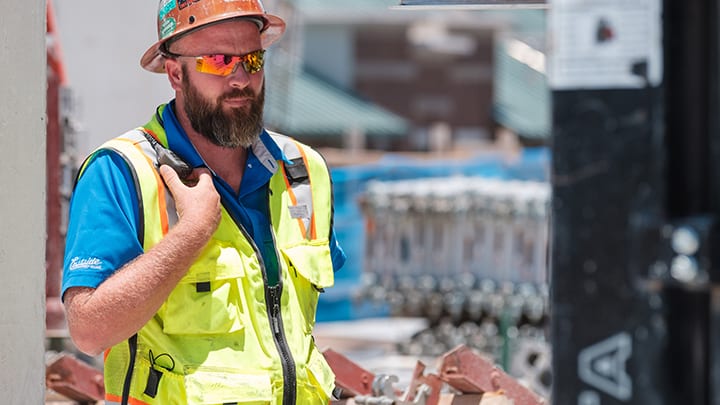Mechanical Contractors: What Are Their Responsibilities?
Consider the most recent building you walked through. Was it your home? Office? Grocery store? Chances are, it’s due to the work of mechanical contractors that it’s a functional building today.
From frigid hockey rinks to packed football stadiums, hotels to hospitals, universities to skyscrapers, mechanical contractors are building the world we see today and the one that will be there for us in the future.
What is a mechanical contractor?
Simply put, mechanical contractors oversee the mechanical projects for organizations. They are responsible for the heating or cooling systems, refrigeration, piping, and plumbing of a building. While some contractors may work on a project during production and installation, others may manage the ongoing maintenance and repair throughout the building’s lifecycle.

Elements of Mechanical Construction
Mechanical construction is a dynamic industry, and projects come in all shapes and sizes—from small residential homes to large-scale commercial buildings. Contractors also vary in the type of work they do, including:
- HVAC Systems: includes heating, ventilation, and cooling/air-conditioning equipment.
- Refrigeration Systems: the artificial cooling of a space, substance, or system; this is done either by transferring heat around or moving it from one area to another.
- Plumbing: includes pipes, tanks, fittings, and other elements that control the water supply, heating, and sanitation of a building.
- Electrical Systems: a network of electrical components that supply, distribute, and use electrical power; includes overhead and underground lines, poles, transformers, and other equipment.
Duties of Mechanical Contractors
On most projects, mechanical contractors are heavily involved in the coordination of all trades, making collaboration (both with other specialty contractors and within their own organizations) vital to the success of a project. They must also be cognizant of time and budget obligations and must finish all the mechanical elements on time and within budget so as not to delay other trades (or the project as a whole).
Mechanical contractors will often design mechanical parts ahead of time and then install them once on site. Because of this, they often rely on VDC/BIM solutions, allowing teams to virtually build a structure before actually building it. This enables teams to catch design issues, or clashes, early on—helping them prevent costly rework before it happens.
But what does this look like day-to-day? For mechanical contractors, responsibilities may include:
- Managing staff
- Delegating tasks to team members
- Monitoring resources
- Overseeing the full scope of electrical construction and maintenance
It’s important to note that while many mechanical contractors self-perform work, some also subcontract out work to third-party businesses. This often requires additional scheduling of the other trades.
Salaries & Job Outlook for Mechanical Contracting

Salaries
According to Indeed.com, the average salary for a mechanical contractor ranges from approximately $40,000/year for a Project Manager to $89,443/year for a Service Manager. Because these numbers fluctuate regularly, it’s best practice to check the most up-to-date salary ranges on sites like Glassdoor, Indeed, and Payscale.
Job Market Outlook for Mech Construction
When the recession hit in 2007, few industries were hit harder than construction, which slipped into decline earlier and recovered later than any other job sector. In fact, a report by the U.S. Chamber of Commerce and the USG Corporation found that 95% of today’s contractors have issues finding skilled workers.
While this has created challenges for the industry, it has also opened up a promising job outlook for those aspiring to work in the mechanical industry. These contractors are in high demand, and the U.S. Bureau of Labor Statistics predicts many mechanical specialties like HVAC and plumbing will have faster employment rates than other occupations from 2018 to 2028.
Mechanical Contractor Software
Due to the complex nature of mechanical construction, leading contractors often use a construction management platform to help them manage projects efficiently. Specifically for mechanical contractors, a platform helps teams:
- Streamline field-to-office communication and allows employees to report any on-site issues in a matter of seconds
- Track labor production and more efficiently manage teams and materials
- View up-to-date information in real time, from anywhere
Procore is a construction management platform designed to help mechanical contractors control their time, materials, and productivity—from bid to closeout. To learn how Procore helps contractors stay on time and within budget, check out Procore Project Management.
If you liked this article, here is an eBook you might enjoy.
Construction Software Buyer’s Guide for Subcontractors
